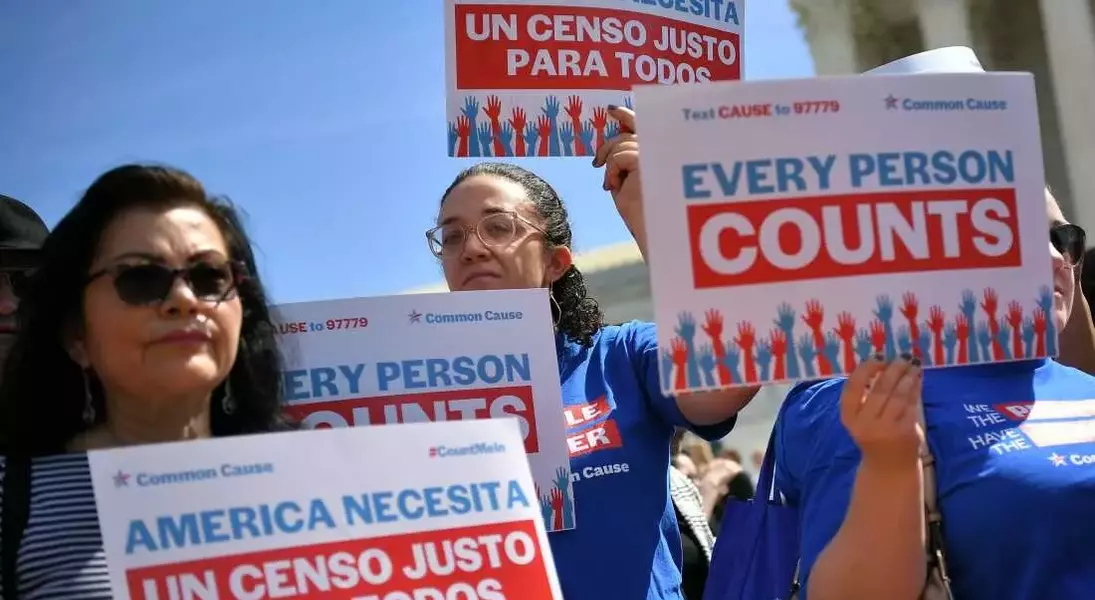
This report delves into the renewed push by former President Trump to alter the methodology of the upcoming U.S. census, specifically advocating for the exclusion of individuals without legal status. Such a profound shift would mark an unprecedented departure from historical practices and constitutional interpretations concerning population counts. The implications extend beyond mere statistics, potentially reshaping political representation and the allocation of crucial federal resources across the nation. The proposal has already ignited a vigorous debate, drawing criticism from various sectors concerned with its legality, practicality, and potential impact on demographic accuracy and social equity.
Former President Reignites Census Controversy with Proposal to Exclude Undocumented Residents
On August 7, 2025, former President Trump made a striking announcement, calling for a “new” U.S. census that would, for the first time in the nation’s history, explicitly exclude millions of individuals residing in the country without legal status. This directive, shared via a social media post, has ignited a fierce debate, casting a shadow over the meticulous preparations already underway for the official 2030 national enumeration.
The proposed change directly confronts a long-standing constitutional mandate. The Fourteenth Amendment explicitly requires the inclusion of the “whole number of persons in each state” for the purpose of congressional apportionment and Electoral College votes. This foundational principle ensures that political power and representation are distributed based on the total resident population, not solely on citizenship status. Trump’s previous administration also attempted a similar measure by pushing for a citizenship question on the 2020 census, a move that was ultimately blocked by the U.S. Supreme Court, though the Court did not definitively rule on the exclusion of undocumented individuals from apportionment counts.
The former president’s instructions to the Commerce Department, the agency overseeing the Census Bureau, indicate a desire to leverage “results and information gained from the Presidential Election of 2024” for this redesigned census. The specific relevance of election outcomes to census methodology remains unclear and has not been publicly elaborated upon by Trump or his representatives. The White House, Commerce Department, and Census Bureau have yet to comment on the feasibility or legal standing of such a radical alteration to a constitutionally mandated decennial process.
Historically, Article I of the Constitution has mandated a census every ten years since 1790, primarily for the reapportionment of congressional seats. Introducing an unscheduled, altered census, or modifying the criteria for the 2030 count, raises significant constitutional questions regarding the validity of using such data for established apportionment processes. Experts suggest that any attempt to implement this change will inevitably be met with immediate and substantial legal challenges, reminiscent of the battles fought during his first term.
The Census Bureau is currently engaged in extensive planning for the 2030 count, including the release of an operational plan and preparations for a major field test, the “2026 Census Test,” across six diverse regions in the South and West. This meticulous, multi-year process underscores the complexity and importance of an accurate national count. Altering these established procedures or introducing new, untested questions could compromise the integrity and reliability of the data collected, which is not only vital for political representation but also for the equitable distribution of trillions in federal funding for public services.
Research conducted by the Census Bureau itself has previously indicated that inquiring about citizenship status is likely to yield inaccurate self-reported data and could severely deter participation, particularly among Latino and Asian American communities. Such concerns extend to the potential for producing “substantially less accurate” demographic statistics and significantly increasing operational costs. The fundamental concern remains that this push is politically motivated, aimed at gaining an advantage for certain political factions by altering the demographic basis for electoral maps and resource allocation.
The renewed emphasis on excluding undocumented residents from the census has raised alarm among civil rights advocates and immigrant communities. There is a palpable fear that such policies will foster a climate of distrust, leading to decreased participation in the census, thereby resulting in an undercount of vulnerable populations. This could not only undermine their political voice but also reduce their access to vital public services funded by population-based allocations. The historical precedent overwhelmingly supports the inclusion of all residents, regardless of legal status, marking this proposed change as a profound and potentially destabilizing shift in American governance.
From a journalist's perspective, this renewed attempt to redefine who counts in the U.S. census is a critical story that transcends mere policy debate; it strikes at the core of democratic representation and constitutional principles. The potential ripple effects on federal funding, political power distribution, and the civic engagement of marginalized communities are immense. This ongoing narrative highlights the fragile balance between political ambition and foundational legal frameworks, underscoring the vital role of an independent, accurate census in a diverse nation. As the legal challenges inevitably mount, the public's understanding of why every person counts, regardless of their background, becomes paramount for upholding the integrity of our democratic processes.
